Content Week 46/2023
Hope to see you!

Sunday afternoon in Vienna’s vineyards
Retrospect
Chatprotocols and German Criminal Law
I read an interview with Austria’s minister for constitutional matters, Mag.a Caroline Edtstadler on Saturday morning. She suggessts to make it a crime in Austria to publish files of criminal procedings in media before the accusations being publicly discussed in court. And she argues that such a provision exists in Germany. As I am of a very strong opposite opinion and as I have some knowledge about the German legal system (after 17 years spent there as professor of law) , I allowed myself to write a short thread on the matter.
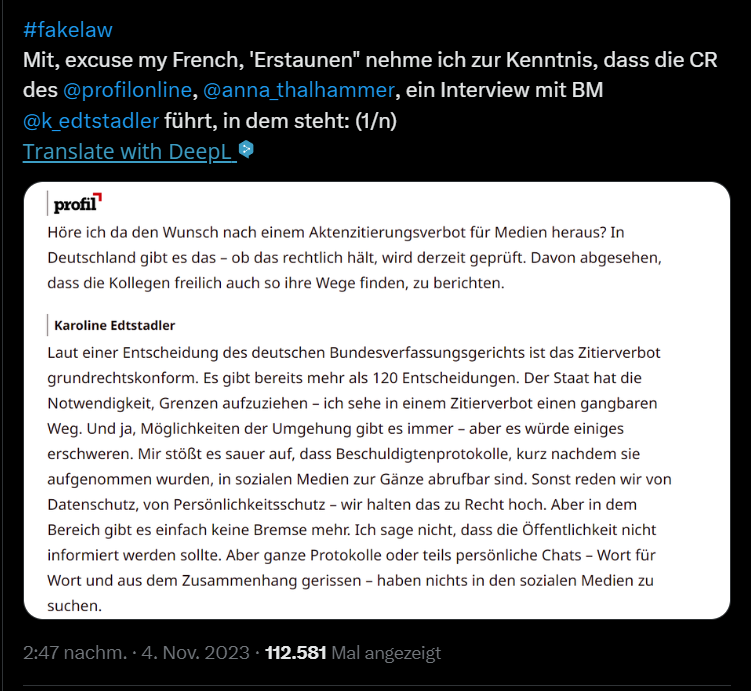
The response was remarkble, with > 100.000 views, > 300 likes, > 130 reposts on Twitter, an interview in ORF`s evening news
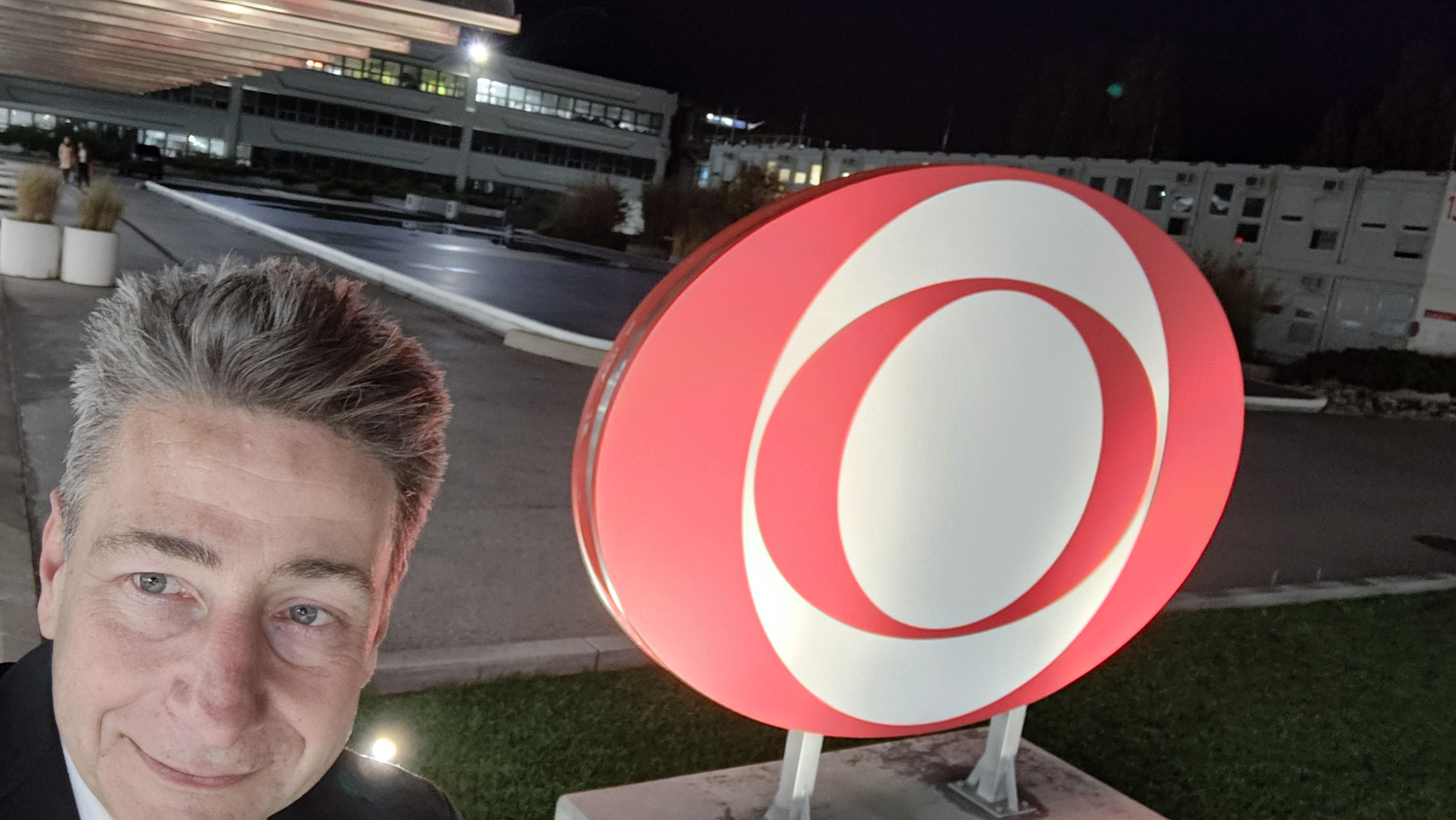
and an (upcoming) opinion text in profil later this week. The headline will be “Warum Edtstadlers Aktenzitierungsverbot Unsinn ist. Die ÖVP-Verfassungsministerin will Medien nach deutschem Vorbild beschränken, um Beschuldigtenrechte zu stärken. Sie sollte sich mit der dortigen Rechtslage intensiver beschäftigen.” - This will - finally - bring all remaining career possibilities in the federal chancellery to an early end. :-).
100.000
We passed another landmark with #arsboni this week: 100.000 hours of our viewers’ lifetime were spent by watching our videos - just on YouTube.
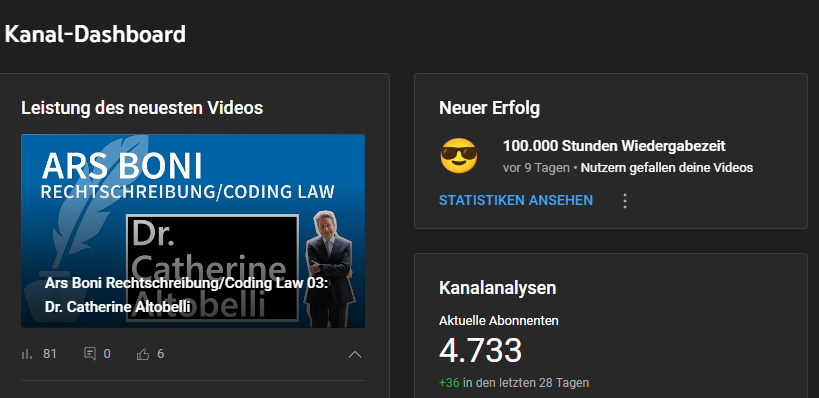
I feel deeply humbled about that, but also impressed by the impact such a one-person, almost a hobby format can develop - not only on the creator’s personal life, but also on there professional surrounding. It happens more and more frequently that people introduce me as podcast host, or vlogger, or news anchor or journalist at hardcore scentific ‘serious’ events - and that’s fun. I am really grateful for everyone joining me on this journey and giving feedback - both on technical and content aspects.
#arsboni
I had four sessions this week and all four of them brought me a lot of food for thought.
Dr. Catherine Altobelli spoke about her very succesful and finished PHD project shedding some light on how it is to write on the intersection between two legal fields habitated by different academic communities that don’t speak frequently with each other yet (data protection and copyright law, in her case).
Prof. Dr. Anna Katharina Mangold evaluated (the lack of) diversity in legal professions, with a specific focus on legal education and research, based on her brilliant essay on the matter that to read I highly recommend. One of the - many - insights (for me) in reading and talking to her was, how overrepresented people with immigration background are when it comes to the beginning of law studies on the one hand and how overrepresesented on the other hand the upper class is when it comes to the other side of the spectrum - the professors who are typically “white, male, rich”. “There are more Thomases and Christians in the ‘Staatsrechtslehrervereinigung’ than women”, she said.
I think this is fundamentally important as it must have an impact on the interpretation of the law. And in law, everything is interpretation.
Prof. Dr. Josef Pauser, head of Austria’s Constitutional Court’s library and honorary professor for legal history, spoke about legal research in times of the internet and his non-mainstream career.
The fourth conversation was with Prof. Dr. Dieter Kranzlmüller and was very inspiring too. It’s about what it means to run a computer center at universities in times of AI and quantum computing and information warfare. I finished the video editing on Thursday, but I am still waiting for his OK to put it online which will hopefully happen son. I will most likely further report on this next week.
E-Teaching and AI
We had the first online exam in our class on legal research - a compulsory course for first year students, taught and examined exclusively online fur several hundred students. After several very smooth years without any technical issues, I felt very much reminded of the early days back in Vienna in 2017 this time, due to a full technical crash of the entire elearnig platform (“Moodle”) precisely within the exam’s timeslot. The outcome was dozens of student requests flooding every communication channel available within minutes and a very stressfuld afternoon for everyone involved. It reminded me a lot of the vulnerability and dependency of digital teaching on technical infrastructures one can very hardly control and I was still thinking a lot on this when attending (another) meeting on AI and education with the two vice rectors in charge of th ematter at UNIVIE.
Vice rector Schnabl stressed teaching aspects
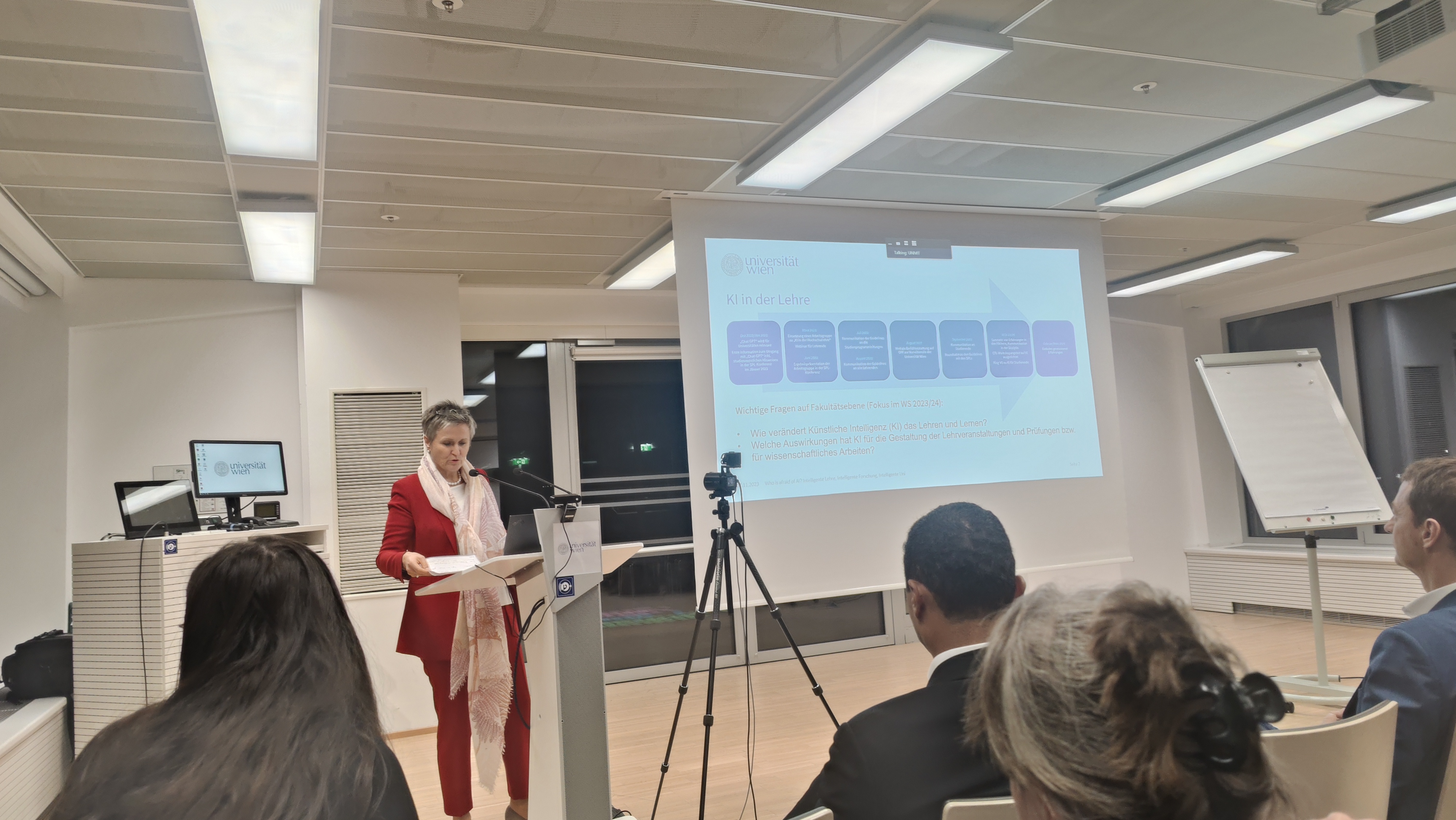
while vice rector Maier stressed IT-related aspects (with a lot of interesting metaphors related to his hobby hiking).
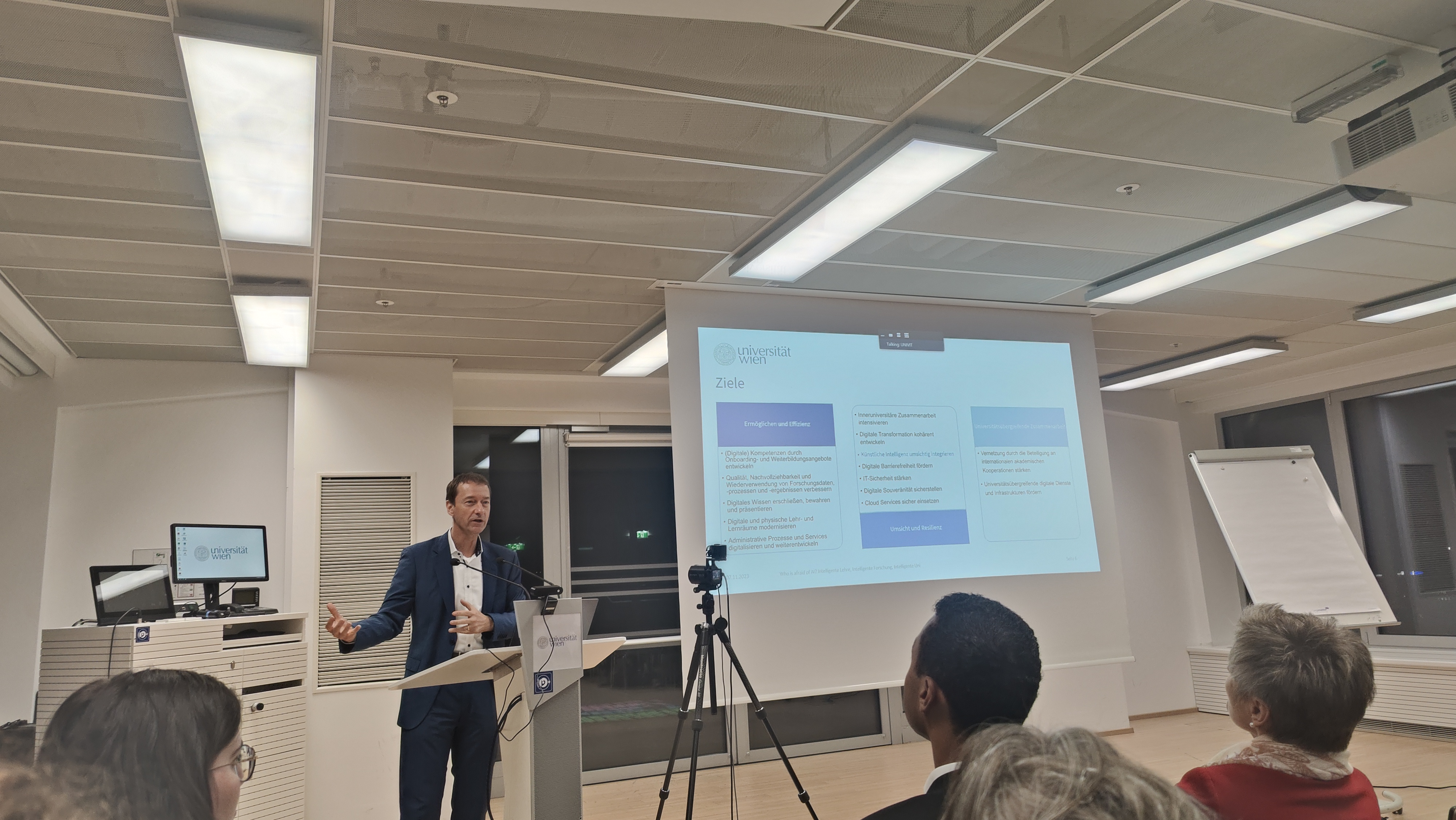
I was, as usual, the only one wearing a mask.
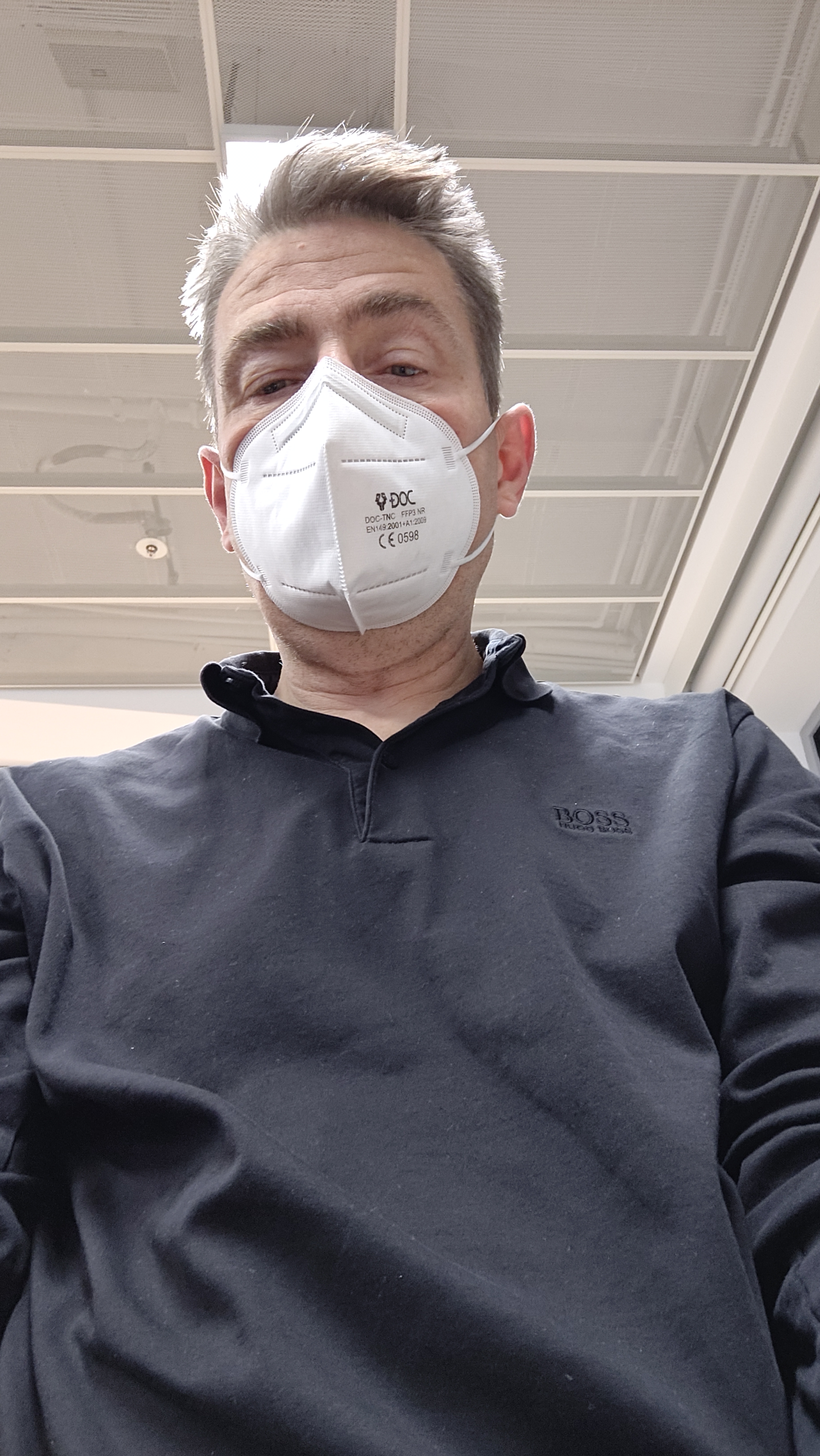
Books, Books, Books
I finally had the time to open all the many new letters and parcels waiting for me in the office and found some nice surprises in there, including several publications I had (co-)authored.
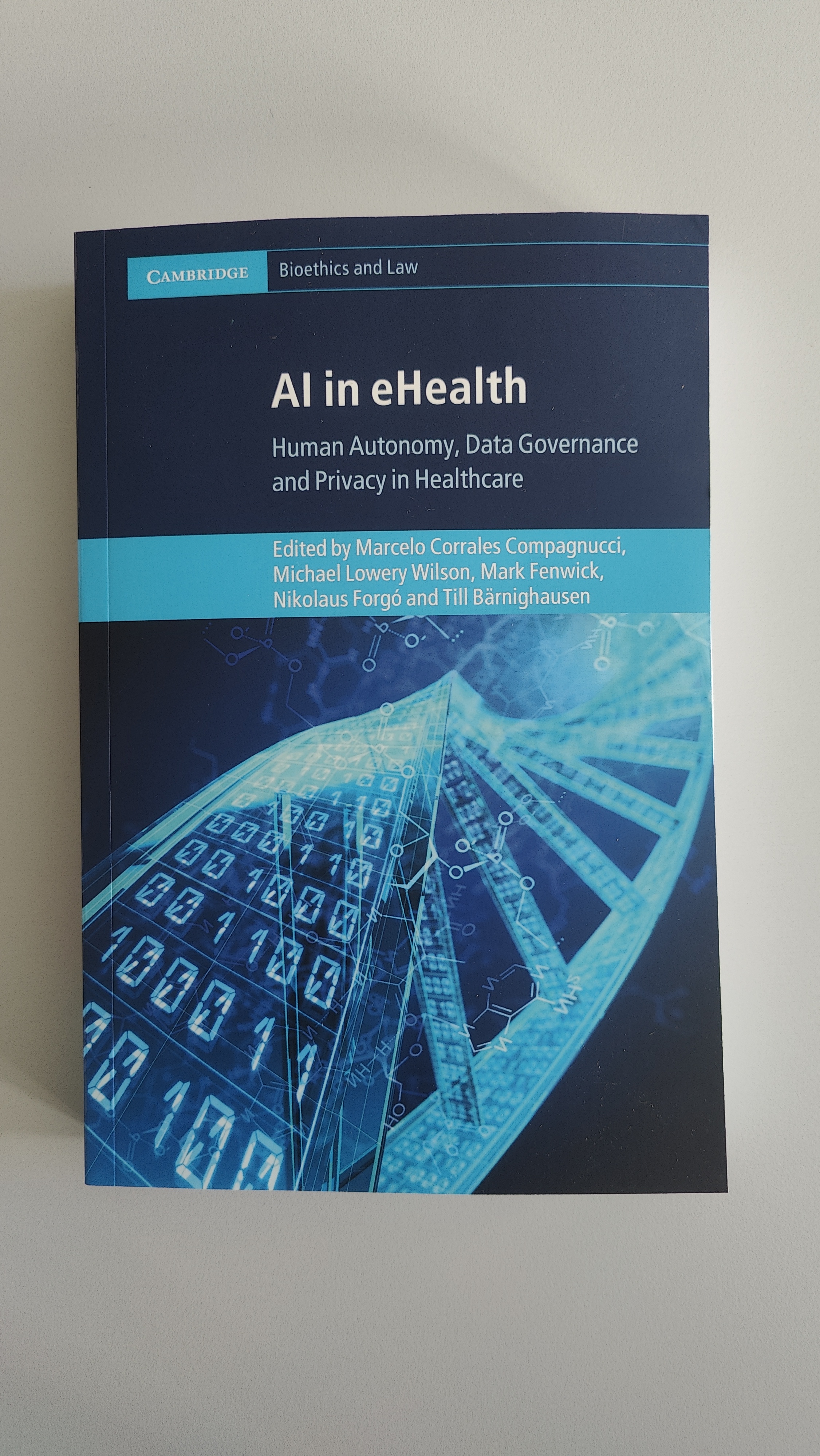
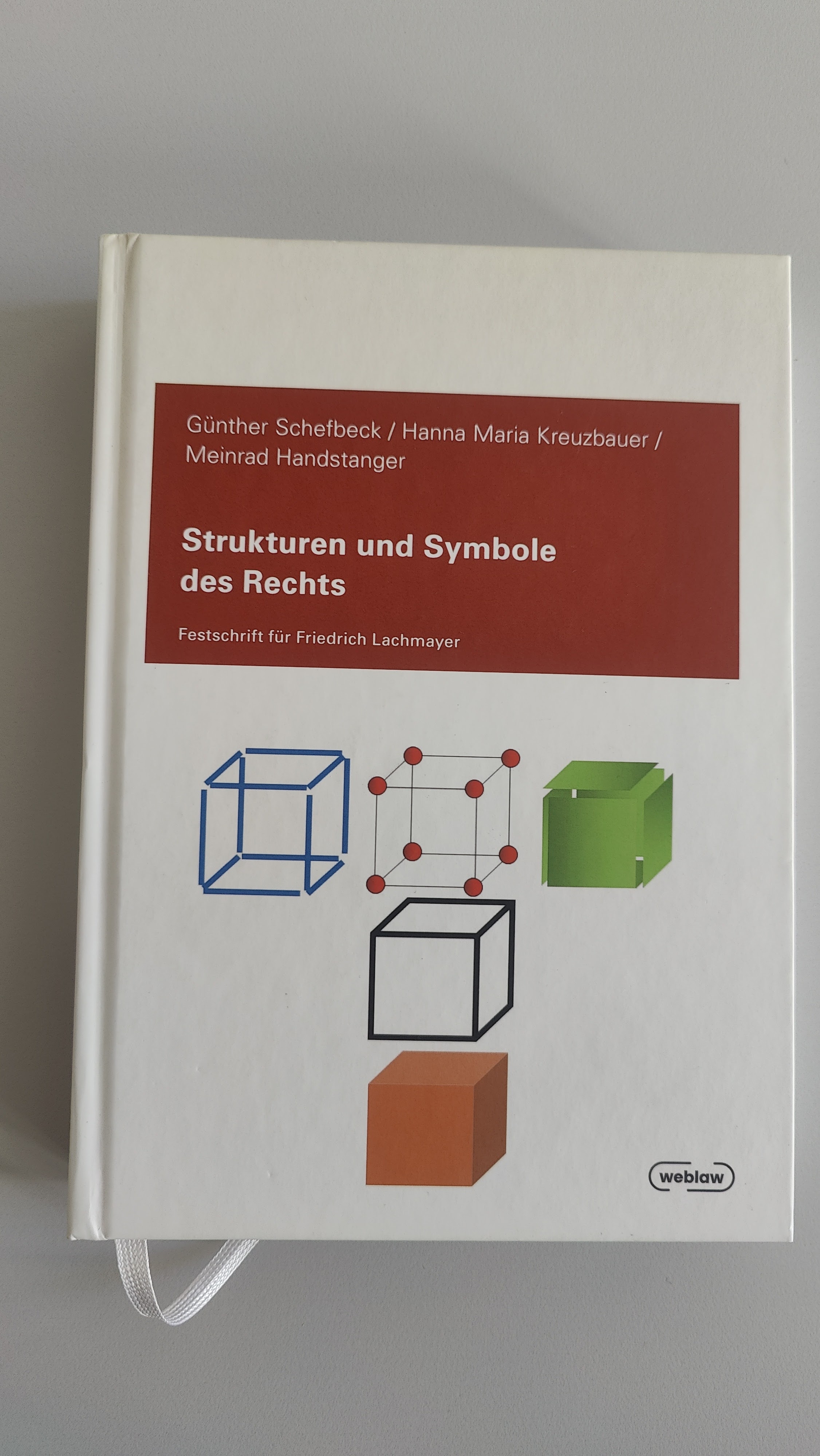
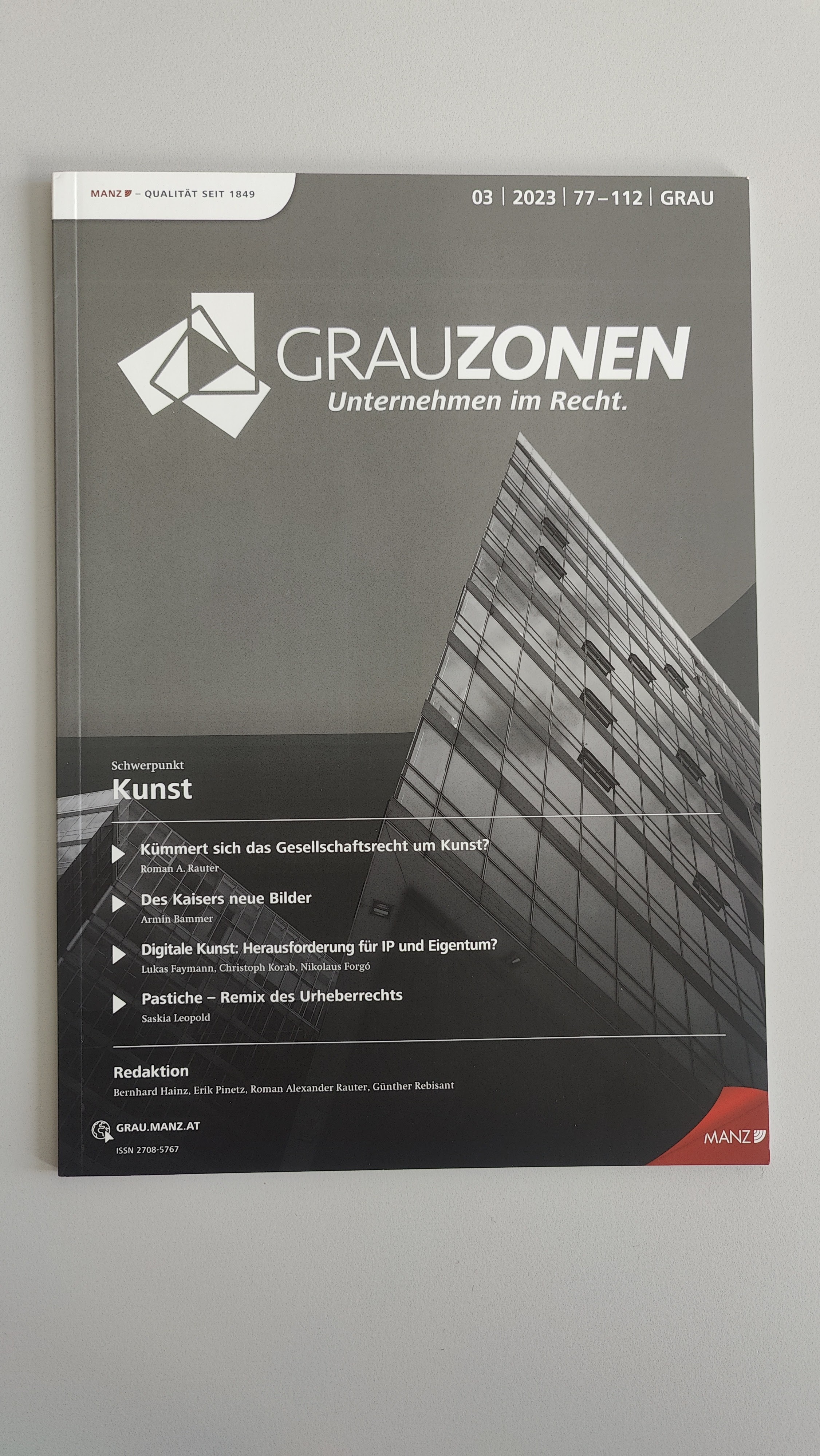
DSA
The CJEU declared Austria’s network enforcement law as infringing Europe’s Country of Origin principle. I read this with some joy as I had predicted exactly this outcome many years ago (here or here for example) - and some others had done the same.
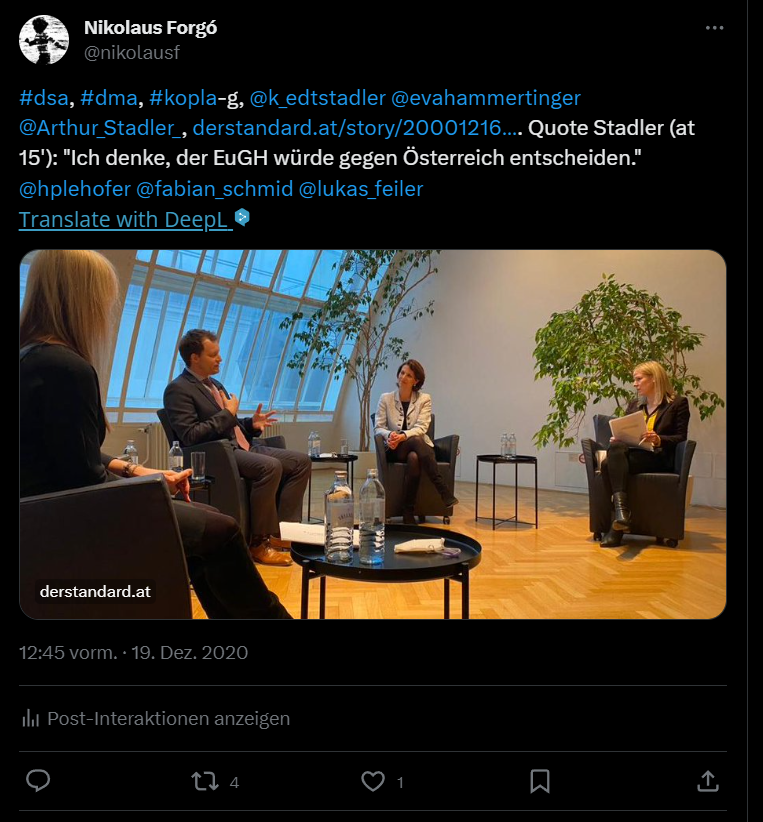
But I am also upset that it really needed such a 101 lecture by the court on this law that is going to be replaced by the DSA-transposition law very soon.
At the same time, I am very concerned about the many unsolved and fundamenal regulatory issues in the #DSA, coming, for example, with “official” leaks (organised or at least supported by governments and military) of barbaric terror videos freely available on all major platforms. I wrote a very first Tweet on this to start the discussion, but I have even less answers than normal here.
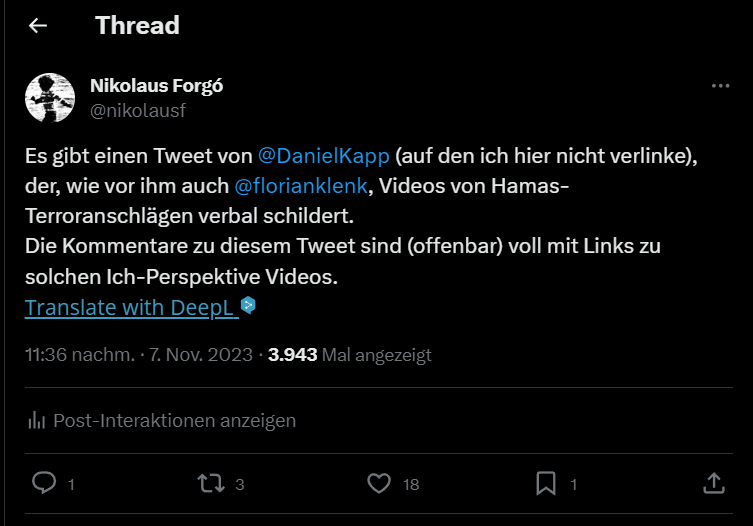
Graz, Insurance, AI, GDPR
In the moment I am writing this, I am at Graz University at a conference on insurance (law), giving a keynote in e few minutes. Nice environment, nice program.
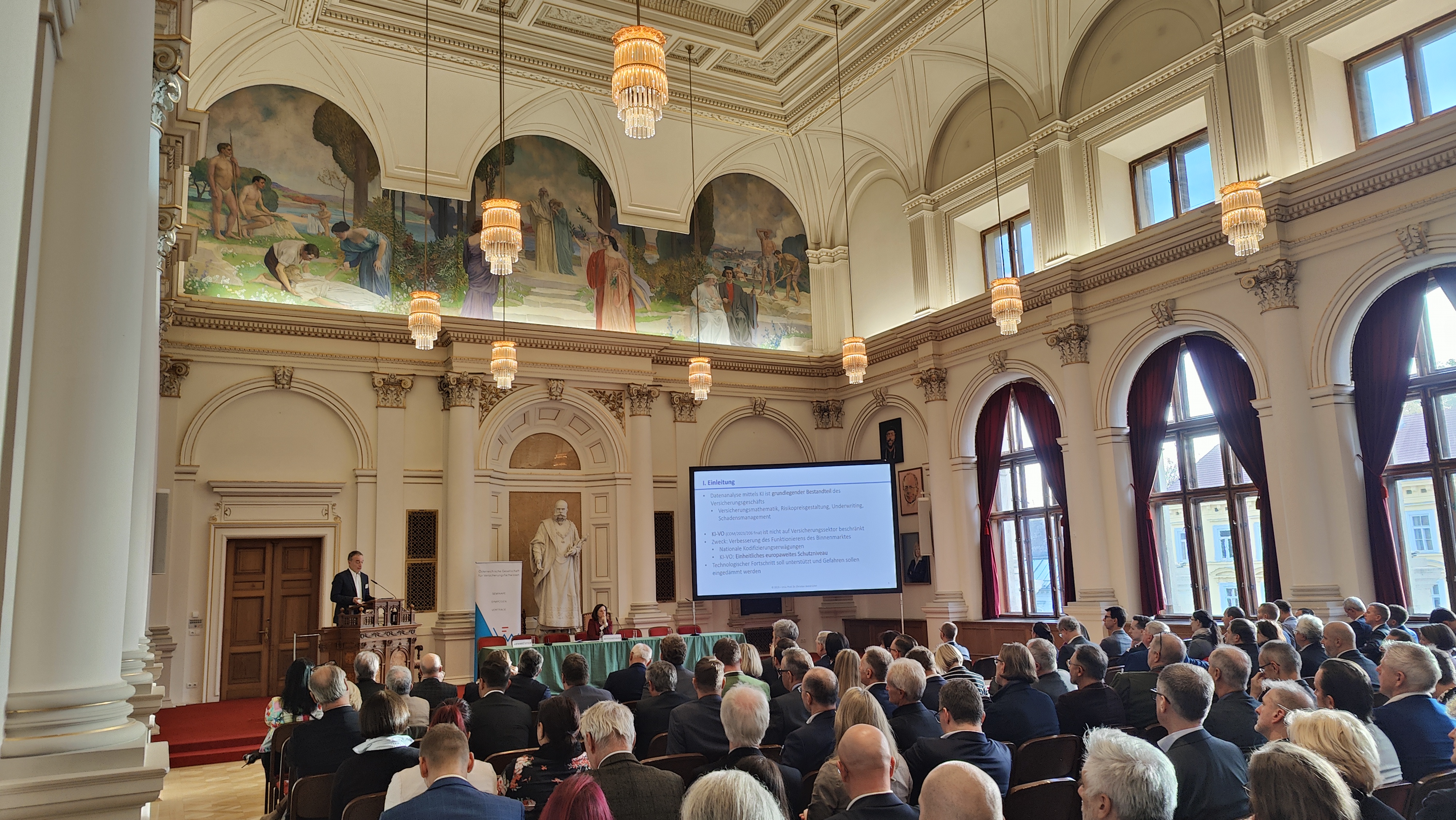
In Graz we are 2, out of perhaps 200, wearing a mask.
Prospect
Lots of interesting things coming next week, such as:
AI Health Vienna
A Conference on AI in medicine in Vienna at the Ludwig Boltzmann Gesellschaft on Monday and Tuesday, with two ministers coming (Gewessler, Rauch) and plenty of interesting speakers. I am giving a presentation on “Big Data, AI und Gesundheitsdaten” and I am chairing a session, together with Dr. Maria Kletecka-Pulker.
Working Group on Data Protection
There’s an (internal?) meeting of staff responsible for data protection at Austrian Universities (“IG Datenschutz”) on Tuesday. I will give a presentation on “KI und Datenschutz. Ein Zwischen- und ein Endbericht”. The event will take place at University of Music and Performing Arts, my slot starts at 9.15 am, I don’t know for sure whether it’s public.
AI and Human Rights
On Wednesday and Thursday I will be at a conference of the Austrian Research Society (ÖFG) on AI and human rights. My topic is the European Aproach to Trust into AI - the program is here, late registrations might still be possible.
#arsboni
Two sessions this week, one recorded from the laundry with Prof. Dr. Peter Bußjäger on the Constitutional Court’s decision on COFAG. It’s a follow up of a conversation we had on the matter prior to the decision, a year ago
The other one will be streamed on Friday, November 17th at 10.00 am (in German). It’s strongly related to the session with Professor Mangold I had earlier this week and mentioned above. It’s about habitus, class and diversity - with Prof. Dr. Felix Hanschmann from Bucerius Law School in Hamburg. Bourdieu, Foucault will most likely be those providing the theoretical background (with Mangold it was Habermas and Luhmann).
Meetings
There will also be meetings of UNIVIE’s Ethics Committee and the Data Protection Council (“Datenschutzrat”). Both are, to my knowledge, not public so that I can’t share the agenda.
Daisy
Daisy was bitten by another dog earlier this week (nothing too serious, fortunately). She is much better already and sends her greetings. This is her right after the incident.
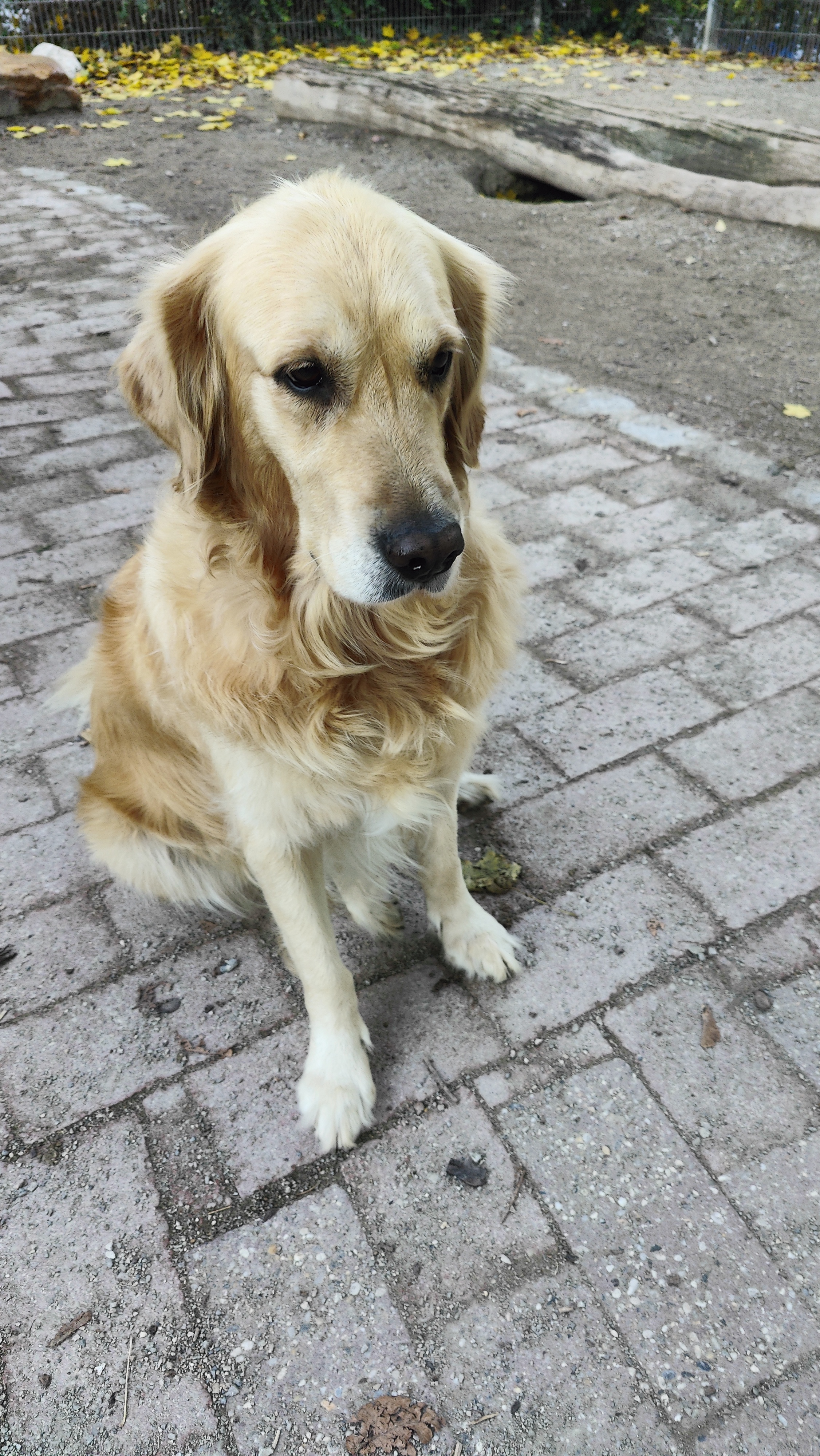
Have a wonderful week!
Kind regards
Nikolaus (Forgó)



